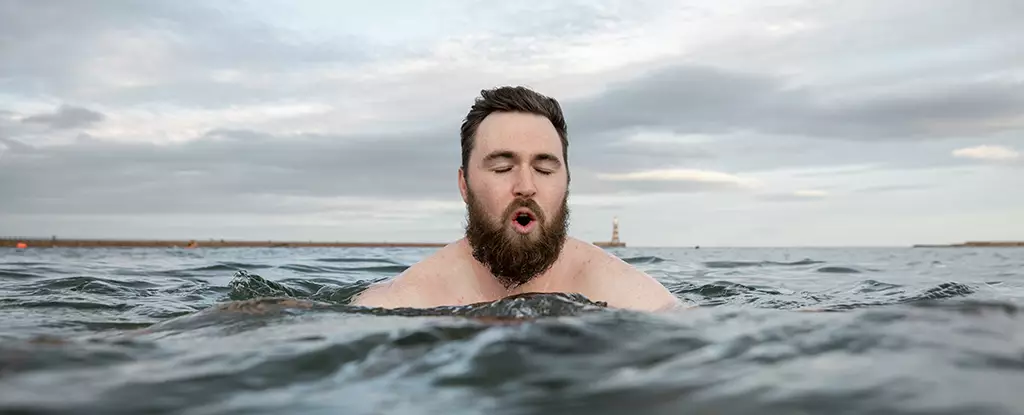Dipping into icy waters might seem like a challenge reserved for thrill-seekers or the notorious winter swimmers, but recent research indicates that this frosty plunge could prove to be a boon for cellular health. Conducted by the University of Ottawa, the study demonstrated an intriguing phenomenon: cold water swimming may not only awaken your senses but also recalibrate your body’s stress responses at a cellular level. Can plunging into freezing waters really act as a form of cellular therapy?
In an experiment involving ten healthy young males subjected to daily one-hour cold water sessions, scientists monitored the cellular reactions through blood samples. Astonishingly, just a week into this chilly regiment, noticeable improvements in processes fundamental to cellular health, such as autophagy—the body’s way of revitalizing and recycling cells—were observed. Notably, while the initial response to the cold was one of chaos, with increased inflammation and cell death, this frenzied reaction soon transitioned into a more constructive cycle of cellular repair and regeneration. These revelations could flip our understanding of how our bodies converse with environmental stress on its head.
A Stress Response Reimagined
To suggest that the body has merely survived the frost is an understatement; it appears to thrive under pressure. This raises the question: does cold water swimming offer more than just a brisk, bracing experience? The evidence points towards a physiological tune-up on a cellular level, suggesting that adopting regular exposure to cold water may bolster the body’s defenses against diseases, while simultaneously offering a potential anti-aging mechanism. This sentiment finds a voice in the words of physiologist Glen Kenny, who muses that cold exposure could indeed represent a vital form of cellular maintenance.
The crux of the matter lies in the body’s astonishing capacity for adaptation. The notion that the physical body can switch from a state of cellular breakdown to one of repair in such a short span of time paints an optimistic portrait of human resilience. Are we on the verge of learning to ‘hack’ our biology through environmental adaptation rather than merely relying on dietary supplements and pharmaceuticals? Yet, despite the tantalizing prospects, one must tread warily.
The Icy Downside
While the findings are compelling, it is crucial to approach them with circumspection. The study’s limited scope, comprised solely of ten young males in a lab setting, raises critical questions about the universality and applicability of the results. What effects might cold water exposure have on women, older adults, or varying ethnicities? The lack of a broader demographic raises the specter of bias and constricted applicability. Furthermore, the artificial, controlled conditions of the laboratory setting starkly differ from the unpredictable elements encountered in nature—the very essence of cold water experiences. Factors such as wind, variable temperatures, and varying cold tolerance in real-world scenarios could significantly alter the outcomes.
Moreover, cold water exposure isn’t without its risks. Prolonged exposure can lead to hypothermia, shock, or even drowning, necessitating a balanced approach to diving into extreme conditions. Though extreme sports often embrace the mantra of no pain, no gain, it is vital to navigate this icy terrain with caution.
A New Perspective on Health Practices
The implications of this research, however, beg for further exploration. If embraced rightly, the art of cold water swimming could potentially redefine wellness practices, encouraging individuals to consider an active engagement with their environment rather than viewing it as a mere backdrop to routine life. Integrating such natural, invigorating practices into daily regimens may promote not only individual health but also foster a greater appreciation for the environment.
In a world increasingly defined by artificial comforts and sedentary lifestyles, reconceptualizing how we interact with nature could unlock pathways to not only better physical health but also enhanced mental well-being. Offering a glimpse into our innate ability to adapt and thrive, cold water swimming could serve as a powerful reminder of the tenacity of the human body—transforming discomfort into a profound means of survival and rejuvenation. It might just be the challenge we need to embrace in the face of an increasingly uncertain world.


Leave a Reply